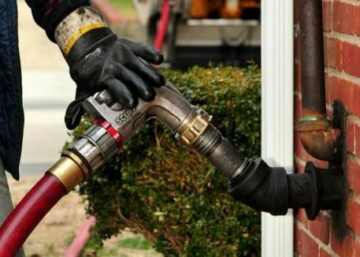OFTEC Ireland, the body representing the liquid fuel heating industry in Ireland, is urging the Irish Government to take a more realistic approach to reduce carbon emissions where the home heating sector is concerned.
OFTEC is encouraging the government to implement a fair and efficient methodology in order to tackle climate action in homes. This new strategy should be both affordable and realistic for the 686,000 homes in Ireland currently using liquid-fuelled heating systems.
A pivitol aspect of this action plan focuses on the Government promising to increase carbon tax from €20 to €80 per tonne by 2030. Unfortunately, OFTEC Ireland has indicated that this approach will certainly affect those with under-insulated homes and inefficient heating systems, forcing them further into fuel poverty.
The Governments newly proposed plan also recommends replacing fossil fuel boilers in existing homes with newer technologies as a mechanism to reduce carbon emissions. However, this would involve significant financial costs and inconvenience, and is an unrealistic approach according to OFTEC Ireland, given the easier route of burning biofuels. The organisation recommends decarbonising the fuel itself and promoting better use of controls as a more appropriate alternative.
David Blevings, OFTEC Ireland Manager, commented, “Over 40% of Irish consumers have a liquid-fuelled boiler, many in rural and off-grid homes and the most practical and cost-effective way to reducing their carbon emissions is by decarbonising the fuel they use. Independent research shows that the installation of systems such as air source heat pumps are not suitable for 90% of off-grid homes in ROI because their BER rating is below C1.
“OFTEC is not against the use of heat pumps; we recognise the clear benefits these offer to new build and thermally efficient houses. However, deep retrofitting older, thermally inefficient homes to a standard where a heat pump is viable could cost up to €50,000 per home with associated mass disruption.
“Tackling climate change in Ireland needs to be fair. Retrofitting homes to improve thermal efficiency is of course a good thing but increasing carbon taxes will not lead to a mass move to improve off-grid homes as consumers have much more pressing demands for their disposable cash and will ultimately lead to profound social impacts; the Government need to implement a socially just transition to avoid some members of the community being left behind. Liquid fuelled boilers are being installed currently by leading manufacturers and will still be a viable option for the foreseeable future, adapted and ready for the next generation of bioliquid fuels.”
OFTEC Ireland has developed a vision and realistic pathway to replace the current kerosene fuel used in oil boilers with a sustainable supply of low carbon liquid fuel. Calculations show that if all 686,000 liquid-fuelled boilers move to a B30 biofuel (30% FAME/70% Kerosene mix) the carbon saving would be twice as much as Department of Climate Change and Energy Efficiency proposal to move 170,000 oil-fired homes to air source heat pump by 2030.*
“We will be lobbying Ministers and TD’s this year asking for home heating to be included in the biofuels obligation. The current biofuel obligation overlooks the fact there is no obligation on the liquid fuelled home heat sector. The inclusion of home heating oil in the biofuels obligation is doable, it’s a seamless transition for existing oil users and an easy win for Government with reducing carbon emissions, while also encouraging competition in the marketplace. It makes much more sense than penalising rural dwellers through increased carbon taxes,” added David.




